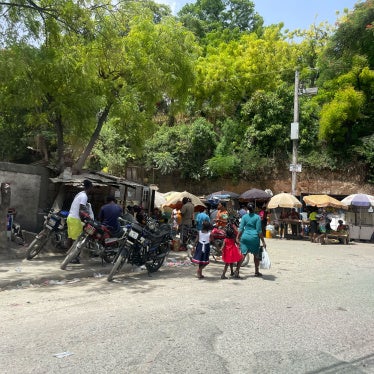From time to time, the killing of a woman at the hands of a male partner or an ex outrages Brazil. If there is video, the murder may climb to the top of the headlines.
Such was the case of Tatiane Spitzner, the 29-year-old lawyer who died on July 22. Security camera footage showed her husband repeatedly assaulting her, late at night, in a car, in a garage, and in an elevator. The camera then caught him trying to clean blood stains from the elevator walls.
Prosecutors accuse Tatiane’s husband of pushing her from their fourth-story apartment balcony to her death.
Many people were appalled that nobody intervened. They used social media to call on parents, siblings, coworkers, and friends not to look away when signs indicate a woman may be suffering domestic violence. Neighbors of Tatiane did contact the police several times, but officers only arrived after her death.
While it is important to call on ordinary Brazilians to intervene, it is even more important not to let the government off the hook. The government can do a lot to stop abusive men who think women´s bodies are their property.
The killing of a woman by a partner or former partner is usually the tragic end of years of abuse. Often, such deaths could have been prevented if authorities had intervened to break the cycle of violence.
The 2006 Maria da Penha law seeks to prevent domestic violence by creating specialized services to support women. But official data obtained by Human Rights Watch through Brazil´s information-access law shows that federal and local governments are cutting services for survivors of violence instead of expanding them.
Since 2016, 15 specialized centers that provided psychological, legal, and other support to women and 23 shelters that housed women and children in desperate need have closed down. Only 74 shelters remain, in a nation of more than 200 million people.
An important reason for those cuts is a 35 percent reduction, since 2014, in the budget of the National Secretariat of Policies for Women. The cuts have left a trail of broken promises.
In 2013, the federal government pledged to build, by the end of the following year, 27 “Brazilian Women’s Houses” to centralize services for female victims of violence.
Five years later, there are only three.
Many women suffer violence in silence and do not report it to the police because of family pressure, religious beliefs, fear, or financial dependence on the abuser. But many never go to authorities because they do not trust that the agencies will do anything to help them.
In many cases, they are absolutely right.
Brazil has 497 police stations and units within police stations that specialize in crimes against women. That’s one for every 210,000 women. But most close in the evening and on weekends, when domestic violence is most likely to occur.
Even when women do report violence, data compiled by Human Rights Watch shows police don’t properly investigate thousands of cases a year.
Unchecked domestic abuse typically escalates and may lead to death. A study in 2015 estimated that about half of all killings of women in Brazil are the result of domestic violence. If that ratio holds, it means that more than 2,250 succumbed to domestic violence last year.
When the video is forgotten and the headlines fade, Tatiane Spitzner will become one more name in this year´s statistics. But her loved ones will never forget the tragic, senseless way in which she died.
We shouldn´t either.










